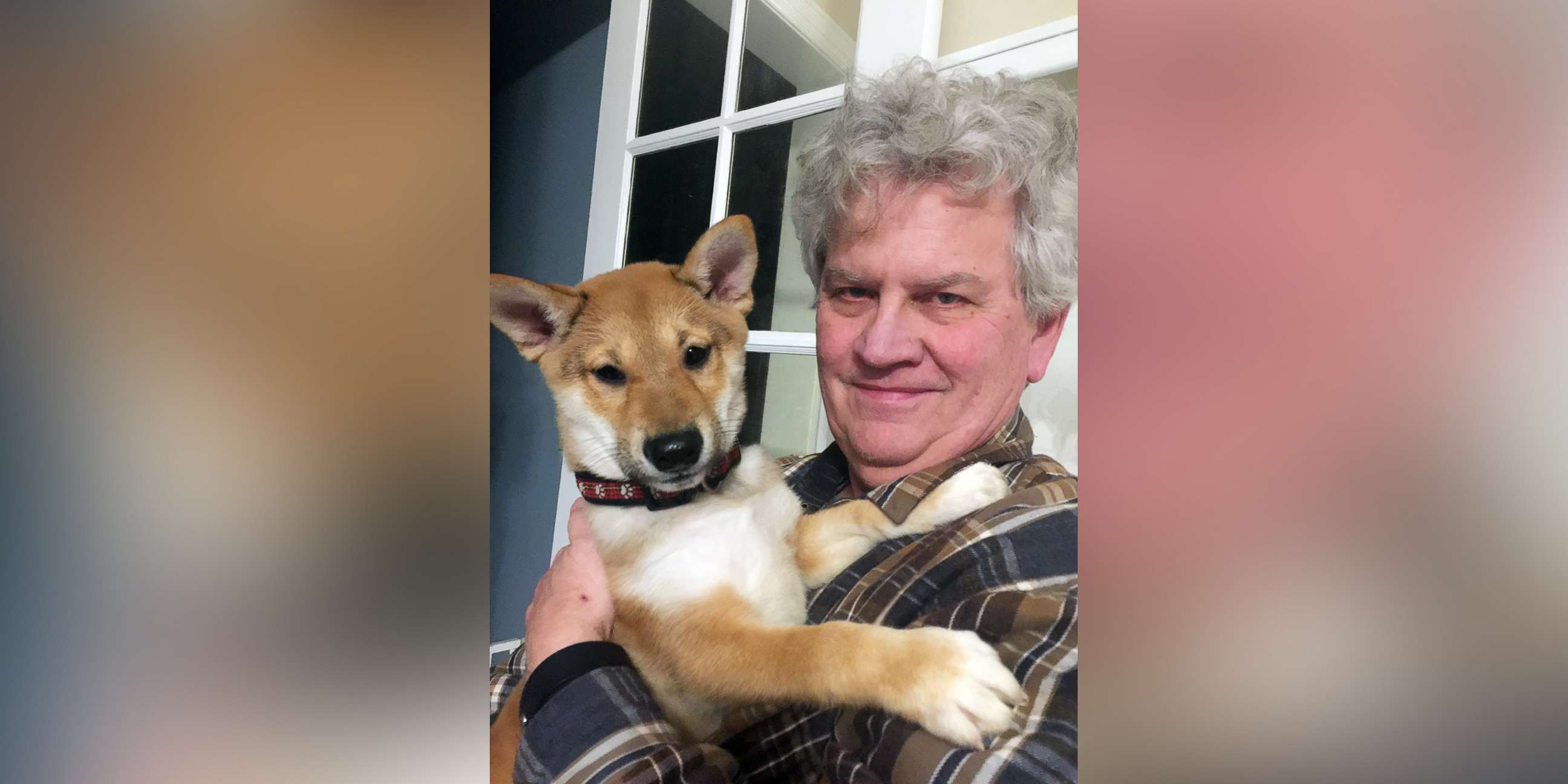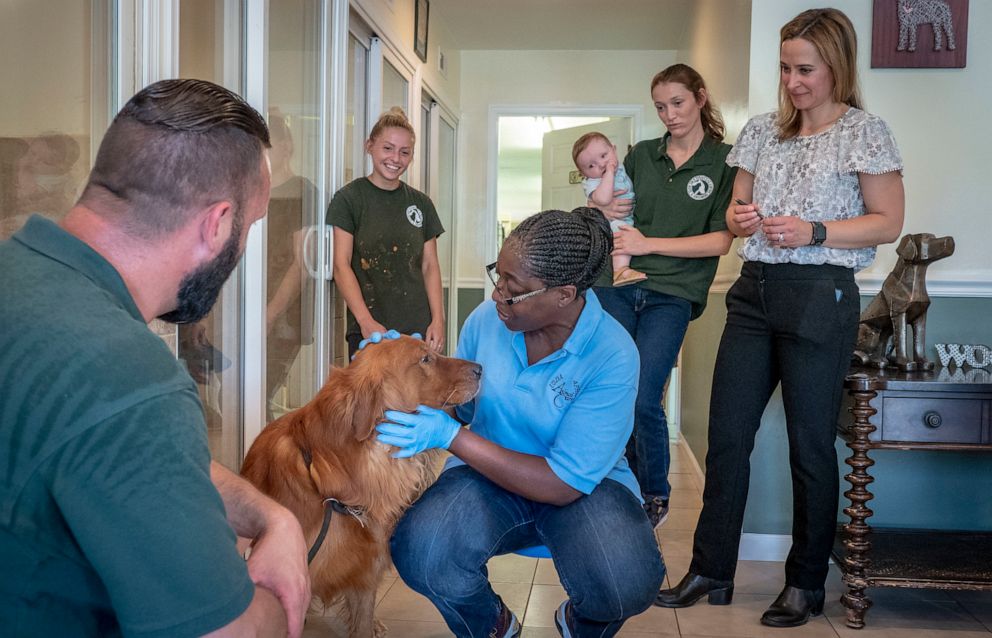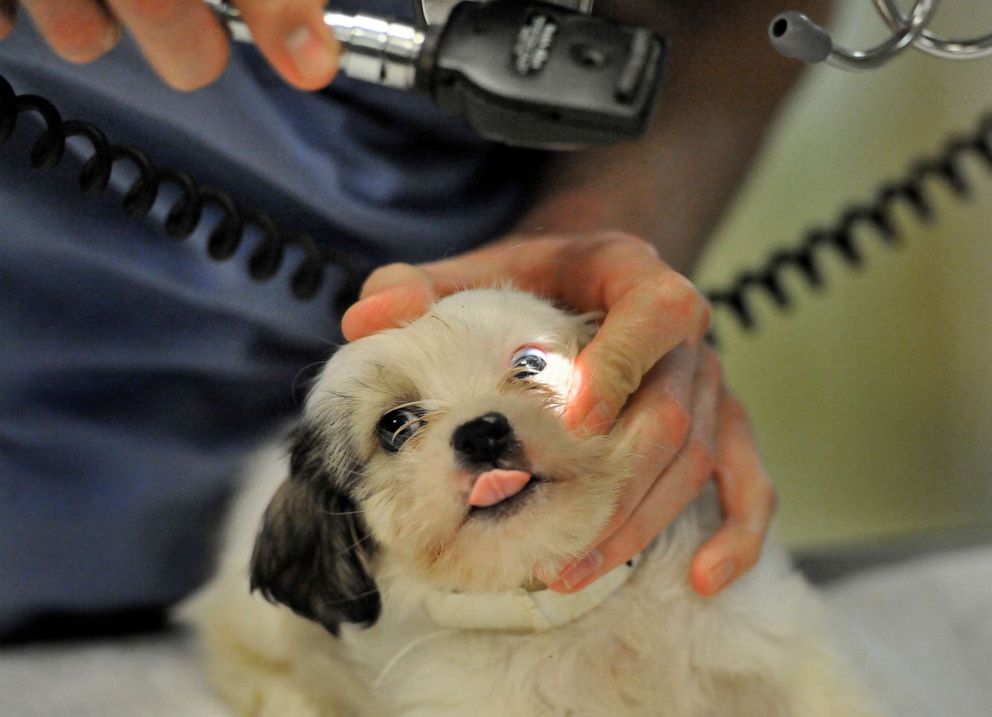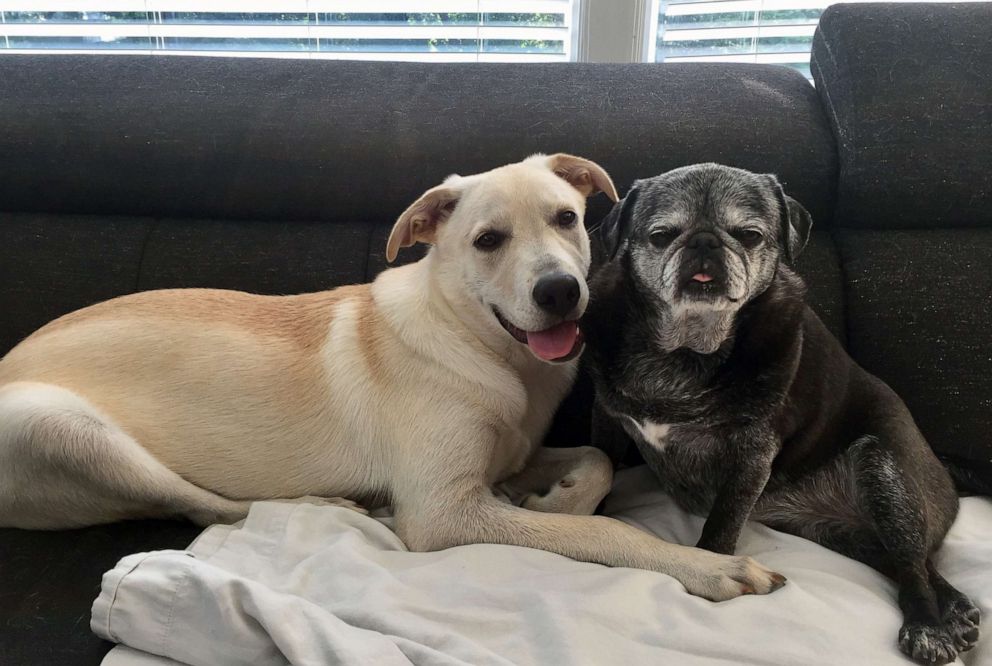Animal welfare laws and concerns over enforcement lead to warnings for pet buyers
Animal advocates are concerned about rollbacks in enforcing animal welfare laws.
Olga and Mike Krueger's new puppy, a Shiba Inu they named Taka, died five days after they took him home. The diagnosis was canine parvovirus, a highly contagious disease that their vet said would have been less severe had he been properly vaccinated by its breeder.
The couple suspected the breeder lied about the dog's medical history and remembered the dog had different markings on his paws than the pictures that were advertised. When they researched online the Kruegers found the breeder had operated under multiple websites and business names, some of which would suddenly go offline. They also found a similar complaint filed by a St. Louis family in 2016.

Consumer advocates say the Kruegers experience is not uncommon. Americans are increasingly turning to the internet to find their next pet, but finding accurate and timely information can be difficult and the breeders themselves often aren't tightly regulated.
What's more is that under the Trump administration, inspection reports have been removed from a public database, making it even harder for consumers to check up on potentially bad breeders.
The breeder, Debra Ritter in Curryville, Missouri, declined to comment when contacted by ABC News. In response to an investigation by the Missouri attorney general's office, she denied intentional wrongdoing and said she addressed a parvovirus outbreak at her facility late last year.
"We have never tried to cheat or scam any buyer online or that comes to our home. We have always had a license to breed and have never had our license pulled or been fined for not complying," Ritter wrote in an email to the Missouri attorney general's investigator.
In March, the Missouri Department of Agriculture found the Krueger's complaint was mostly substantiated and cited the Ritters for multiple violations, including failing to follow a veterinary plan for the dogs and keeping incomplete records. The breeder refunded the money the Kruegers paid for Taka and some of their veterinary bills. But the couple says they still feel burned by the experience.
Parvovirus is common in dogs, especially puppies less than four months old and dogs that aren't vaccinated. The American Veterinary Medical Association says with proper treatment around 90% of dogs that show symptoms can survive.
"I would say that we have learned our lesson and we really don't want anybody to experience what we went through, my message would be really think twice before you purchase a puppy," she said.
Less regulation under Trump
In less than three years in office, President Donald Trump has worked toward rolling back regulations on everything from how meat is labeled to how the government tracks pollution. Similar to other agencies, the Agriculture Department (USDA) refers to any business owner it regulates as a "customer."
Accordingly, all measures of federal enforcement at USDA have declined in recent years. Data from its animal welfare agency shows only 15 cases were opened in the first three quarters of the 2018 budget year. That's compared to 205 cases in 2017 and 239 cases in the 2016. The agency also issued 193 warnings in most of 2018, compared to 523 and 1,320 in 2017 and 2016 respectively.

John Goodwin, senior director of the Stop Puppy Mills campaign for the Humane Society of the United States, said his group has huge concerns about the decline in enforcement.
"There has been a significant decline in both citations and enforcement actions and so people can allow animals to suffer in miserable conditions in puppy mills and the USDA will turn a blind eye most of the time," Goodwin said. "I'm sure every restaurant owner that has been cited by the health department wishes that all regulatory agencies were so lenient but frankly dogs deserve better than this."
The USDA says the changes have been focused on helping facilities comply with animal welfare regulations as quickly as possible, in part by giving them a chance to correct problems before they are officially issued a citation. A spokesman also said they expect the number of citations to be about the same in 2019 as the previous year, in part because they have fewer inspectors on staff and routine inspections were not conducted during the government shutdown.

The USDA's internal watchdog has found in multiple reports since 2010 this approach -- emphasizing education over aggressive enforcement -- has not worked in deterring breeders and other pet "dealers" who repeatedly violate animal welfare laws.
The inspector general's office recently started a new audit to see if the animal welfare office at the USDA is following its recommendations.
USDA inspection reports were a popular and widely used source of information for consumers up until a few years ago when they were taken off the public website shortly after Trump took office.
The administration says it decided to remove the information to protect the privacy of breeders and has argued in lawsuits that's partly necessary because groups like the Humane Society of the United States and PETA use the information to publicly attack breeders and should continue to be withheld.
Advocacy groups that use inspection reports to investigate potentially bad actors say it's virtually impossible to hold individual breeders and the agency charged with oversight accountable without information on inspections and violations.
Ani Satz, a law professor at Emory University focused on animal law, said such laws already have low standards in most cases. And Satz warns that inspection reports and violations have been used to bring legal action and public attention to get animals out of bad situations in the past.
"In the big picture protections for animals are woefully inadequate in this context and by taking these reports away they're taking away the one tool that people who believe in upholding the law have to protect these animals," Satz said.
The USDA is considering some changes that advocates say will help, such as blocking people who have had their license revoked or suspending from transferring their breeding operation to a family member's name. But advocates say much more is needed to improve oversight of the condition of animals in commercial breeding facilities.
"A rule is only as good as its enforcement and we support the rule with an administration that takes this seriously it would be a good rule but with the current USDA it won't really accomplish as much as we hope," Goodwin said.
Members of Congress have repeatedly called for the agency to restore inspection reports and provide information on violations to congressional committees that oversee the department, but the agency has not complied.
Seal of Approval
The Animal Welfare Act signed in 1966 regulates how animals can be kept and treated in commercial transactions. Similar to how animals are regulated in agriculture, it does not prohibit large-scale operations thought of as "puppy mills" that could keep hundreds of animals in cages for much of their life.
The government has considered some technical rules about the type of cages or enclosures that are considered safe, for example, but the federal regulations do not touch areas prospective pet owners could consider important such as high standards of veterinary care or whether puppies are trained or socialized.
Candace Croney, an animal welfare scientist at Purdue University, said that despite a long list of professional organizations, societies and industry groups involved in animal welfare, there is no single entity that tracks and testifies to the standards at animal breeders.
She is currently conducting research on what kind of standards should be included in a "Good Housekeeping seal of approval" for breeders that want to show they meet a high standard of care. But Croney said that process has taken much longer than she originally thought because there's so little research into the well-being of dogs from large breeders.
In the absence of a national program, Croney and others said it's up to consumers looking to buy a puppy to ask questions about where it came from.
"There's no mechanism currently in the U.S. for anyone unless they have a personal relationship with a breeder or they found a breeder in their vicinity ... there's really no way for the better actors in the commercial breeding space to distinguish themselves from anybody else," she told ABC News.

The Kruegers, meanwhile, say they hope that speaking out will help others avoid the kind of experience that they had.
In May, they adopted an Anatolian Shepherd puppy they named Sander from a rescue organization in Iowa.




